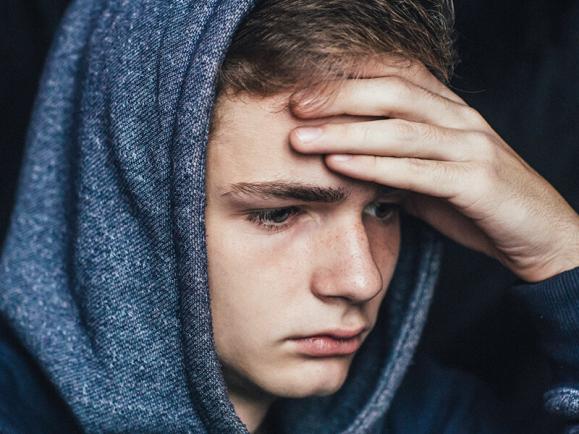
There’s no shortage of troubling circumstances in life that will push us to seek therapy. Whether you’re troubled about the past or anxious about the future, fear will prevent you from living the healthy life you should be living. Therapy can be life-changing for those who seek it. A mental health professional may provide a fresh perspective and give people a better understanding of their emotions. Therapy can also promote one’s self-esteem, relationships, and outlook on life. On the flip side, some see a therapist and don't get what they should be out of it. These are six red flags that you aren’t getting what you need out of therapy.
You are extremely tired.
Are you unusually sluggish or tired? A lack of energy and vitality is often the result of depression and anxiety. Yes, these issues can occur from other problems, including sleep or health battles; however, one of the most significant signs that you’re struggling with anxiety and depression is when you’re feeling tired. That tired separates you from doing the things that you are called to do. Therapy won’t automatically shift you from a low energy place to a high-energy place. If you’re still extremely sluggish after seeing a therapist for a few weeks, you may not be addressing the underlying issues you brought you to therapy in the first place.
You are agitated.
Going through a period of extreme frustration can break you down. During these periods, you may find yourself feeling on edge, anxious, or agitated. In these moments, a simple conversation with your partner or friend can turn into an explosive argument, and a simple thought in your head can take you down a roller coaster of negative emotions. You may also find yourself saying things that are out of character or not feeling quite like yourself. This isn’t just in your head. In moments such as these, you must seek the right mental health professional. They should take you from a place of agitation to a place of calm. If this isn't taking place, there may be an issue with the person that you are seeing.
You still feel alone.
Depression reportedly affects 1 in 10 Americas at one point or another, and an estimated 121 million people around the world currently suffer from some form of the disorder. You are not alone. A good therapist will help you identify what is causing you to feel alone. Through these sessions, you may be able to find hope and gain understanding. If you are still feeling alone after seeing a therapist for some time, you may not be addressing the real issues you are dealing with. If there is anyone that you feel like you can open up to, it should be your therapist. If you are apprehensive after some time, u may need to find the right fit for you.
You don’t feel like you can open up.
A big red flag you’re not getting what you need to out of therapy is not feeling comfortable sharing with them. Of course, it may be tough in the beginning, but it gets easier over time. We often feel isolated when we’re depressed. It is easy for some people to recognize when they are feeling discouraged. For others, it can be harder to discern. Some people can project such confidence and victory that they don’t show the signs when they are in great need. When you begin to see a therapist, you have to be ok with being open. Depression wants to get you alone. If you’re dealing with depression, turn to your therapist and share your feelings of confusion and anxiety. This permits them to share with you at your most vulnerable point.
You’re frequently late or cancel sessions.
Sometimes, you may miss a session, and it is nothing more than a scheduling conflict, but if it happens frequently, it may reflect your attempt to avoid therapy, your therapist, or your feelings that are coming up in therapy. One big way to deal with this is to notice any urges to avoid therapy, along with the thoughts and feelings that precede them. The better you identify this, the clearer you can identify the issue.
You don’t speak up.
You must speak up when something happens in a session that upsets you. If you have difficulty being honest in your relationship, you might struggle to let your therapist know if something isn’t working or has rubbed you the wrong way. As previously mentioned, you might not be talking to them because you don’t click with them or feel uncomfortable with them. The best way to fix this is to decide if your discomfort is because of hold habits or because you’re not jelling with your therapist.
Honesty and trust are crucial when it comes to therapy. If you’re struggling with these issues, you must get to the heart of the matter. Therapy can be super rewarding when we can sift through the emotional baggage that is holding us back.

